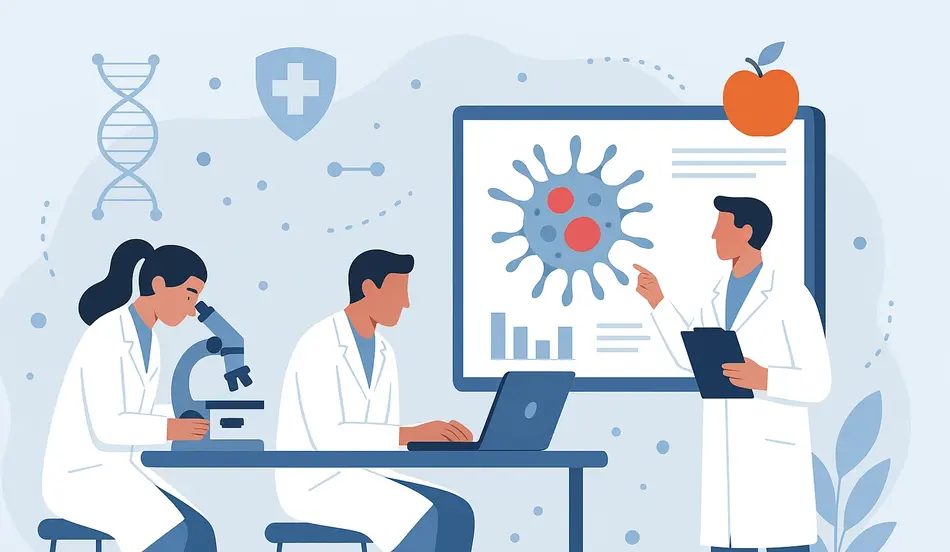Cancer research breakthroughs are transforming the landscape of oncology in 2025. In this comprehensive guide, we explore the latest advances in cancer treatment and prevention, as revealed by renowned expert Dr. David Agus. This article is your go-to resource for understanding the most significant cancer research breakthroughs, including immunotherapy, AI-driven treatments, early detection, genetic testing, prevention strategies, youth cancer trends, treatment costs, and the future outlook. Whether you are a healthcare professional, patient, or someone interested in the latest medical innovations, this post will provide valuable insights and actionable information.
Introduction: The State of Cancer Research in 2025
The year 2025 marks a pivotal moment in the fight against cancer. With unprecedented funding, global collaboration, and technological innovation, cancer research breakthroughs are occurring at a rapid pace. Dr. David Agus, a leading oncologist and researcher, has been at the forefront of these developments, advocating for patient-centered care and evidence-based prevention strategies. This article delves into the most impactful discoveries and what they mean for patients and healthcare professionals alike.
The State of Cancer Research in 2025
Breakthroughs in precision medicine, immunotherapy, and AI are redefining cancer care. Support innovation by building strong teams — post your job on WhatJobs today and connect with professionals driving healthcare forward. Free for 30 days.
Post a Job Free for 30 Days →Immunotherapy Advances: Harnessing the Body’s Defenses
Immunotherapy remains one of the most promising cancer research breakthroughs in recent years. In 2025, new immunotherapeutic agents are being developed that target cancer cells with greater precision and fewer side effects. Dr. Agus highlights the success of checkpoint inhibitors and CAR-T cell therapies, which have shown remarkable results in treating previously untreatable cancers. Ongoing clinical trials are expanding the use of immunotherapy to more cancer types, offering hope to millions worldwide.
AI in Cancer Treatment: Revolutionizing Oncology
Artificial intelligence is revolutionizing cancer care by enabling faster, more accurate diagnoses and personalized treatment plans. AI algorithms analyze vast datasets from clinical trials, genetic profiles, and imaging studies to identify optimal therapies for individual patients. Dr. Agus emphasizes that AI-driven decision support tools are now standard in leading cancer centers, improving outcomes and reducing treatment costs. For more on AI in healthcare, visit National Cancer Institute: AI in Cancer Care.
Early Detection Methods: Catching Cancer Sooner
Early detection is critical for improving survival rates. In 2025, liquid biopsies and advanced imaging techniques are making it possible to detect cancer at its earliest stages. Dr. Agus discusses how multi-cancer early detection (MCED) tests, which analyze blood samples for cancer DNA, are now widely available and covered by insurance. These tests are particularly effective for high-risk populations and have the potential to save countless lives.
Genetic Testing: Personalizing Cancer Care
Genetic testing has become a cornerstone of personalized medicine. By identifying inherited mutations and tumor-specific genetic changes, oncologists can tailor treatments to each patient’s unique profile. Dr. Agus notes that comprehensive genomic profiling is now recommended for most cancer patients, enabling targeted therapies that improve efficacy and minimize side effects.
Cancer Prevention Strategies: Reducing Risk Across Populations
Prevention remains a key focus in cancer research breakthroughs. Dr. Agus advocates for evidence-based lifestyle changes, such as maintaining a healthy weight, avoiding tobacco, limiting alcohol, and staying physically active. Vaccination programs, particularly for HPV and hepatitis B, are reducing the incidence of related cancers. Public health campaigns and workplace wellness initiatives are also playing a vital role in prevention. For career opportunities in public health, explore WhatJobs Public Health Careers.
Youth Cancer Trends: Addressing the Unique Needs of Young Patients
While cancer is more common in older adults, youth cancer trends are shifting. Dr. Agus points to rising rates of certain cancers among adolescents and young adults, necessitating age-specific research and support services. Advances in fertility preservation, psychosocial care, and survivorship programs are helping young patients navigate the challenges of cancer diagnosis and treatment.
Youth Cancer Trends: Meeting Unique Needs
Rising cancer rates among adolescents and young adults highlight the need for age-specific research, fertility preservation, psychosocial care, and survivorship programs. Support progress by building strong healthcare teams — post your job on WhatJobs today and connect with professionals shaping the future of patient care. Free for 30 days.
Post a Job Free for 30 Days →Treatment Costs: Navigating the Financial Burden
The cost of cancer treatment remains a significant concern for patients and families. Dr. Agus discusses recent policy changes aimed at improving access to affordable care, including expanded insurance coverage and patient assistance programs. AI-driven efficiency and generic drug development are also helping to reduce costs.
Future Outlook: What’s Next in Cancer Research?
The future of cancer research is bright, with ongoing breakthroughs in immunotherapy, AI, early detection, and prevention. Dr. Agus predicts that by 2030, many cancers will be managed as chronic conditions, with improved quality of life and survival rates. Continued investment in research, global collaboration, and patient advocacy will be essential to sustaining this progress.
FAQs: Cancer Research Breakthroughs 2025
What are the most significant cancer research breakthroughs in 2025?
The most significant cancer research breakthroughs in 2025 include advances in immunotherapy, AI-driven treatment planning, early detection methods, and personalized genetic testing. These innovations are improving survival rates and quality of life for patients worldwide.
How is AI transforming cancer treatment?
AI is transforming cancer treatment by analyzing large datasets to identify optimal therapies, predict patient outcomes, and streamline clinical workflows. This leads to more personalized and effective care.
What prevention strategies are recommended by Dr. David Agus?
Dr. David Agus recommends evidence-based prevention strategies such as maintaining a healthy lifestyle, avoiding tobacco, limiting alcohol, staying active, and getting vaccinated against cancer-causing viruses.
Are there new methods for early cancer detection in 2025?
Yes, new methods such as liquid biopsies and multi-cancer early detection (MCED) tests are enabling earlier diagnosis and better outcomes for patients.
What is the future outlook for cancer research breakthroughs?
The future outlook is promising, with ongoing advances in immunotherapy, AI, early detection, and prevention expected to further improve cancer care and survival rates.
A Healthcare Professional’s Perspective
Dr. Sarah Thompson, an oncologist at a leading cancer center, shares her experience: “In 2025, the integration of AI and genetic testing has completely changed how we approach cancer care. I recently treated a patient with a rare form of lymphoma using a personalized immunotherapy protocol identified through AI analysis. The patient responded exceptionally well, with minimal side effects. These cancer research breakthroughs are not just theoretical—they are saving lives every day.”




